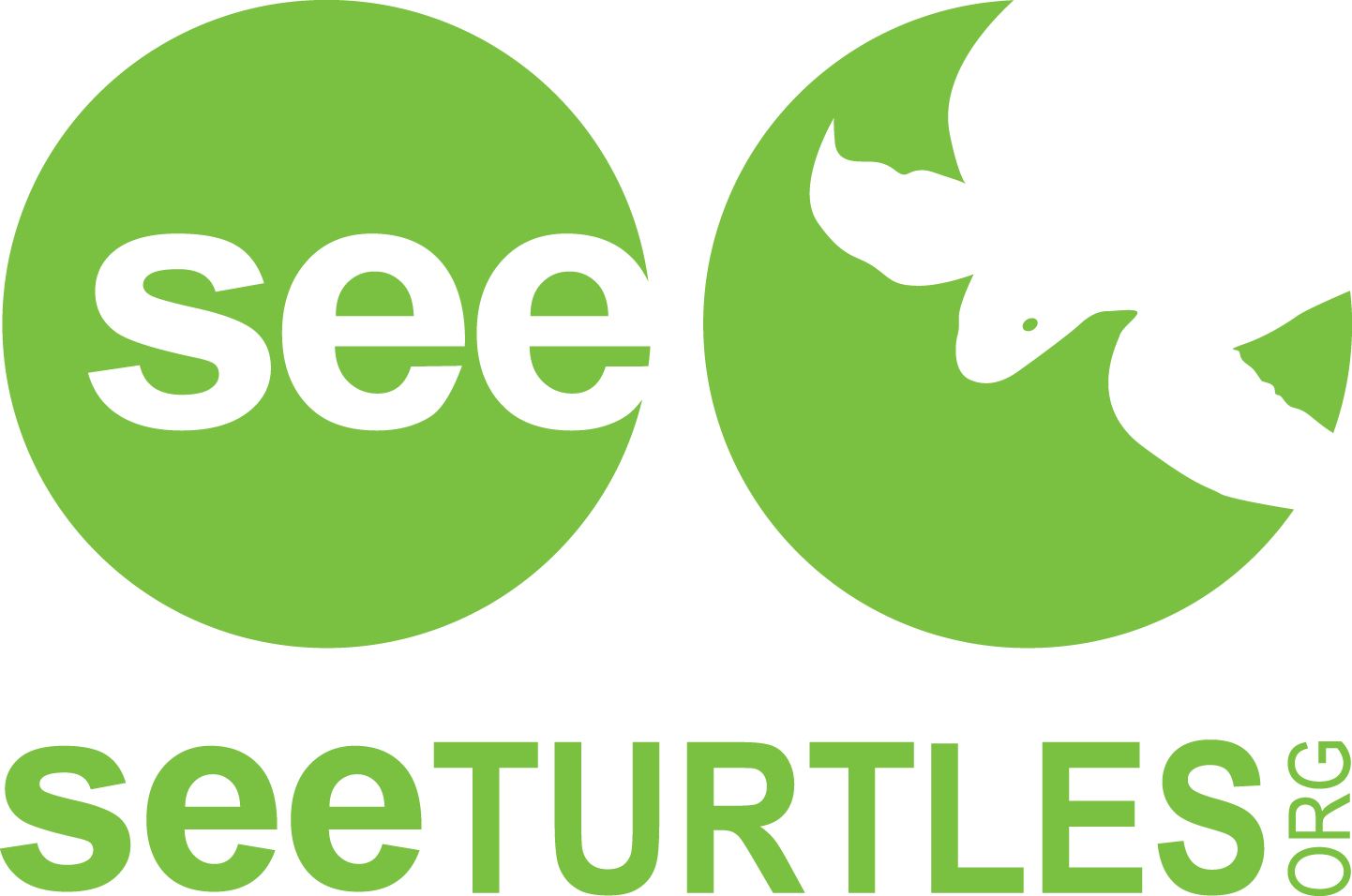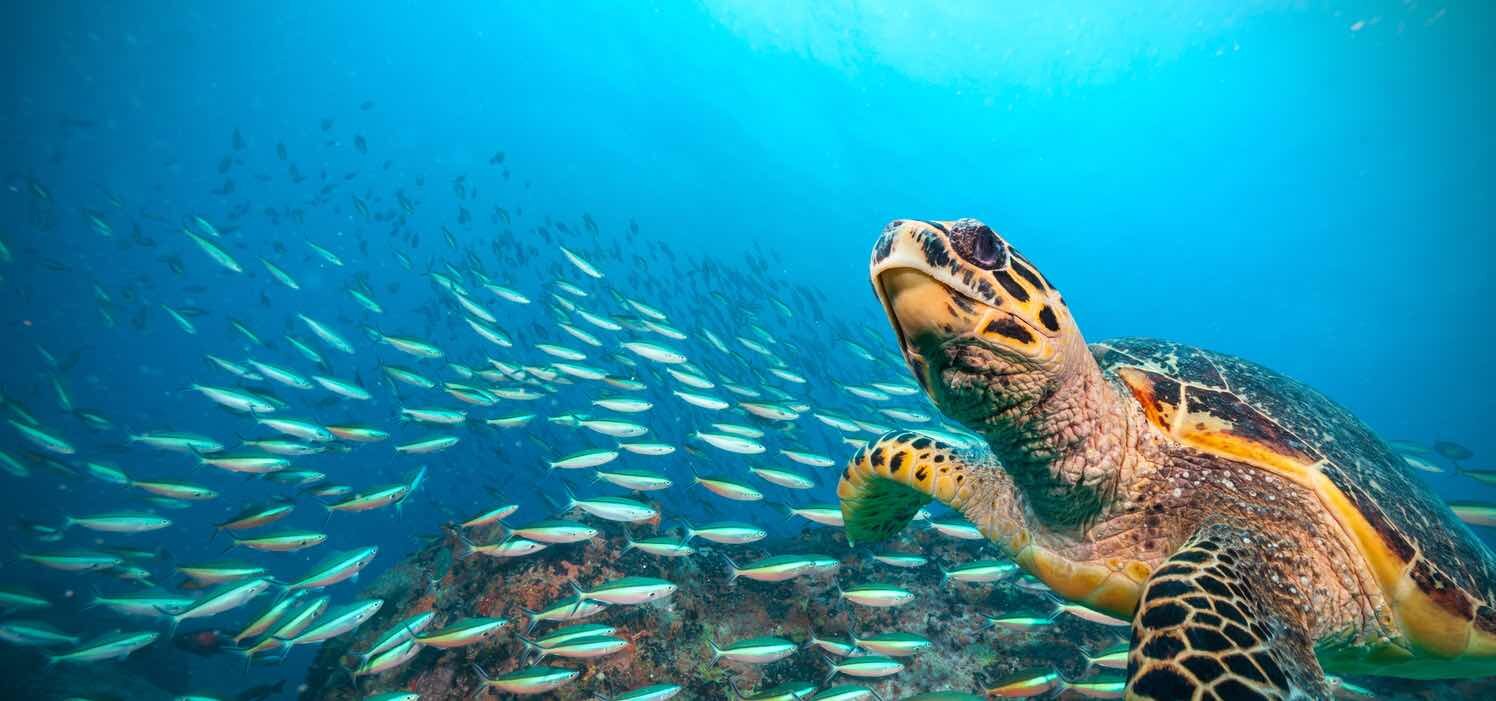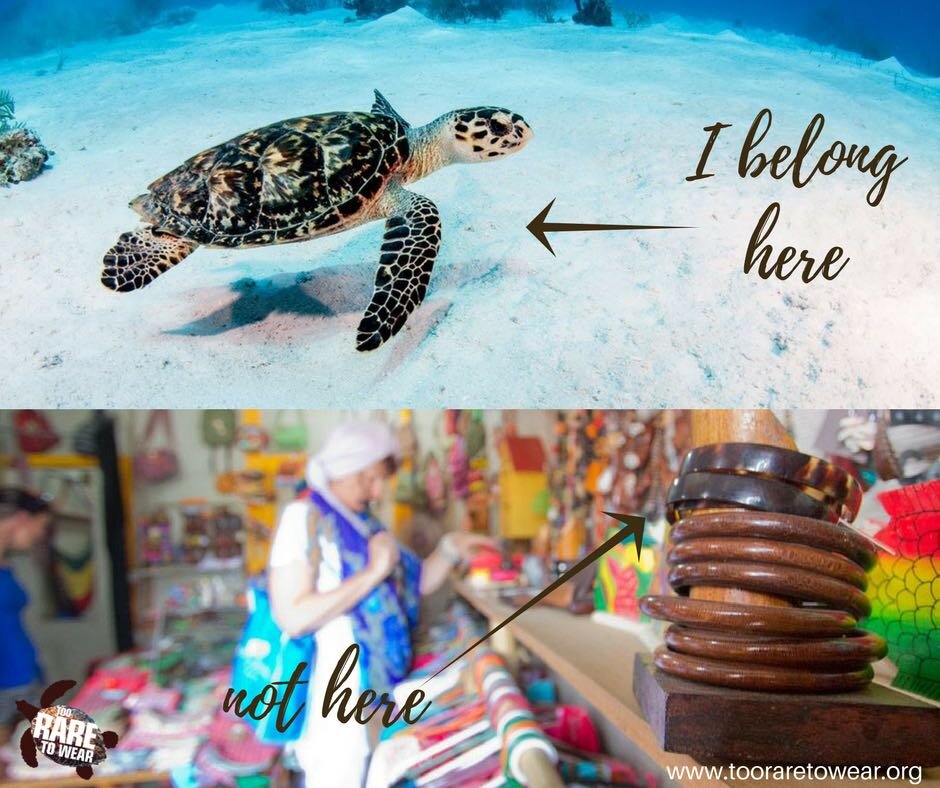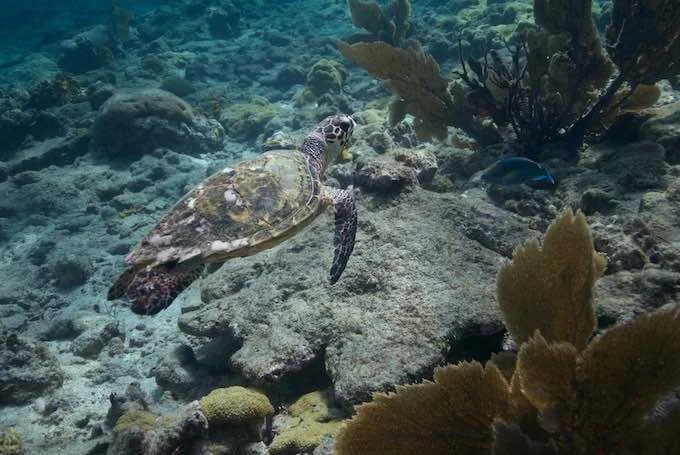Help Us Save The Turtles!
Six of seven species of sea turtles around the world are endangered or threatened but there are many ways that anyone can help! Here are a few ways you can support conservation of wild sea turtles around the world:
1. Don’t buy souvenirs or other items made from critically endangered hawksbill shell. The tortoiseshell trade is the biggest threat to hawksbills. When traveling, ask vendors what souvenirs are made of and when in doubt, don’t purchase items in question. Learn more about the turtleshell trade here.
See our How To Identify & Avoid Hawksbill Turtleshell guide to learn how to recognize turtleshell and other similar looking materials.
2. Help Heal The Climate: Climate change affects the health of coral reefs which are vital to the hawksbills survival. A warming planet also skews sex ratios in baby turtles, erodes nesting beaches, and more. You can advocate for businesses and governments to reduce their emissions and reduce your own as well.
3. Avoid eating seafood or choose responsibly caught seafood. Sea turtles are vulnerable to commercial fishing methods like trawling, longlines, and drift gillnets, becoming unwanted catch (also known as "bycatch") that is discarded like trash. Learn more about sea turtles and fisheries.
To help make turtle-friendly seafood choices check out the Monterey Bay Aquarium’s Seafood Watch which is also available as a handy app for your phone!
4. Just say NO to plastics! Sea turtles and other ocean life mistake plastic as food and ingest it. An estimated that more than 100 million marine animals die each year as a result of eating or getting entangled in plastic.
Advocate for laws reducing plastic use and for companies to reduce their plastic waste. Sign up for our Sea Turtles & Plastic newsletter to learn about opportunities for advocacy and using plastic in your own life.
Avoid using disposable plastic bags, bottles, & skip the straw. Check out our tips to reduce your use of plastics or sign up for our Travelers Against Plastic Newsletter.
Learn about our Sea Turtles & Plastic campaign to get plastic out of turtle habitats.
5. Leave No Trace. This means practicing good practices when visiting a turtle nesting beach. Remove your trash (and trash left by others) and any obstacles that may become hazards for nesting sea turtles and hatchlings like beach furniture, holes, umbrellas, and sandcastles. Turtles need clean and clear beaches to survive.
6. Join a sea turtle conservation tour! Witnessing a sea turtle nesting or baby turtles erupting from a nest is pure magic. Proceeds from our trips directly benefit local sea turtle conservation efforts and nearby communities. We have generated more than US $1 million for conservation and local communities and completed thousands of volunteer shifts. All our trips show our Conservation Impact Pricing, which breaks down where funds go.
7. Turtles dig the dark! Sea turtles need dark beaches for nesting and for navigating their way to the ocean. Light from beachfront development can deter females from coming ashore to nest as well as lead newly born hatchling away from the water and towards danger. Learn more about sea turtle beach etiquette here.
8. Hang onto those balloons! Helium balloons can travel long distances, get caught in electric lines, and hurt animals like birds and sea turtles, which similarly to plastic bags can be mistaken for jellyfish.
9. Choose sunscreen carefully. Chemicals in some types of sunscreen can damage coral reefs and pollute turtle habitat. Avoid any sunscreen with "oxybenzone" and look for brands labeled as "Reef Friendly" & avoid sprays that pollute the sand where turtles nest.
10. Support our turtle conservation programs! We help protect turtle nesting beaches, clean plastic from turtle habitats, work to end the tortoiseshell trade, & more. Donate to help save sea turtles around the world. Use the form at right to donate.
WHAT IS SEE TURTLES?
We're a nonprofit organization that protects sea turtles through conservation travel and volunteer tours, our Billion Baby Turtles, Too Rare To Wear, & Sea Turtles & Plastic programs, our education programs, and by promoting inclusivity in the sea turtle community. Our award-winning programs help save millions of sea turtle hatchlings on important nesting beaches around the world, work with the tourism industry to end the turtleshell trade, help clean up plastic waste from turtle habitats, promote inclusivity in the turtle community, and educate students and travelers about how to help save sea turtles. Learn more about our organization.
Photos: Neil Osborne, Hal Brindley, Ben Hicks, & Daniela Langer (drawing)







